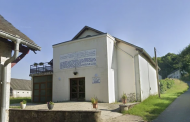Mohammed Abdul Ghaffar
The Qatari regime’s feeling that the abundance of money in its treasury in relation to its small territory in the Gulf, its limited history, and its negligible human and global achievements has been a strong motivation for Doha’s rulers to attempt to gain political and international weight, thinking that this could be bought with money. But when the regime failed to do so, it instead followed devious paths, such as supporting terrorist groups, theft, corruption, and bribery to obtain the rights to organize international championships, which clearly affected its national economy.
Doha initially relied on wealth from oil and derivatives before it found itself compelled to obtain loans to cover the regime’s increased expenses due to domestic projects and its support of suspicious activities abroad.
Unimaginable debt
According to a statement issued by the Central Bank of Qatar on March 26, the government borrowed more than 300 billion Qatari riyals.
The statement indicated that Qatari banks’ total claims against the government amounted to 306.3 billion riyals ($84.2 billion) until the end of February 2020.
The Qatari government’s debt recorded an increase of 10 billion riyals ($2.75 billion) compared to December 2019.
The government borrowed 146.3 billion riyals ($40.2 billion) from banks, in addition to borrowing domestic and foreign currency securities totaling 160.7 billion riyals ($44.17 billion), according to the central bank statement.
Borrowing
The Qatari regime turned to domestic borrowing or local debt instruments such as bonds and bills from banks in the country, with the aim of providing the necessary funds for its projects, whether those inside the country, such as building the World Cup 2022 infrastructure, or its foreign projects, including expanding its control over London’s banking and hotel sectors and supporting terrorist organizations.
This has continued even with the instability of global markets, whether at the level of oil or global stock exchanges, which have been clearly affected by the spread of the noel Covid-19 corona virus.
This trend also occurred in the wake of the Arab quartet boycott by Egypt, Saudi Arabia, the United Arab Emirates and Bahrain that started in June 2017, which has clearly affected foreign investment, especially as Doha continues to stubbornly support terrorist activities and extremist groups in Arab countries.
Rather than the Qatari regime trying to settling its affairs with the four countries and returning to the Arab fold, it instead decided to rely on Iran and Turkey, both of which did not succeed in supporting Doha economically due to their own economic crises parallel to what is happening in Doha.







































admin in: How the Muslim Brotherhood betrayed Saudi Arabia?
Great article with insight ...
https://www.viagrapascherfr.com/achat-sildenafil-pfizer-tarif/ in: Cross-region cooperation between anti-terrorism agencies needed
Hello there, just became aware of your blog through Google, and found ...